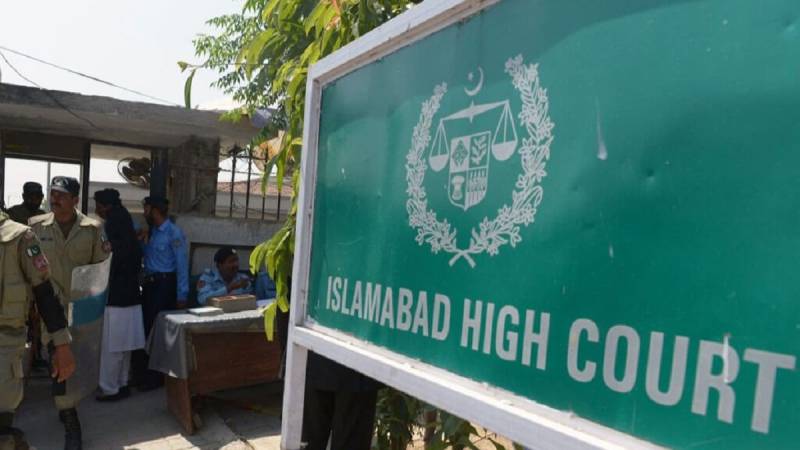
All judges in the Islamabad High Court (IHC) have unanimously decided to give an "institutional response" to any meddling by intelligence agencies or political parties in the judicial process.
This was decided in a full court meeting of the Islamabad High Court (IHC) on Tuesday with IHC's Chief Justice Amir Farooq in the chair.
The meeting was held in light of directions from the Supreme Court, which sought recommendations from all the high courts on how to respond to a situation in which intelligence agencies or the executive interfere and manipulate the judicial process or intimidate judges.
The top court issued these directions on April 3 after it held the first hearing in a Suo Moto case regarding a letter written to the chief of the Supreme Judicial Council (which is headed by Chief Justice of Pakistan Qazi Faez Isa) by six judges of the IHC who blew the whistle on interference, intimidation and surveillance of judges. They levelled serious allegations against the country's intelligence agencies and sought guidelines from the SJC.
The top court had asked the high courts to submit their suggestions by Thursday, April 25.
Sources said that the full court meeting was held on Tuesday to finalise proposals which will be submitted to the Supreme Court. They added that the proposal will likely be submitted to the top court on April 24.
Sources privy to the meeting said that no dissent from any judge came forth during the meeting on the point of giving an "institutional response" in the future to stop interference from spy agencies.
Sources claimed that judges of the IHC recommended the IHC write to the head of the institution involved in interfering in judicial processes.
Sources further added that the full court meeting also decided to empower inspection judges, who have supervisory jurisdiction over lower courts.
Currently, there are three inspection judges in the IHC. Justice Mohsin Akhtar Kiyani is the designated inspection judge for Special Courts. Justice Tariq Mehmood Jahangiri supervises Session Division East, while Justice Mian Gul Hassan Aurangzeb is allocated Session Division West.
According to sources, the full court meeting decided that inspection judges shall exercise their powers if they observe any meddling, either by agencies or political parties, in the lower judiciary.
Sources added that it was also decided that officials associated with security agencies would be banned from court premises, and standard operating procedures (SOPs) would be developed in this regard in the coming days.
During the meeting, deliberations were also made on amending rules for regulating the discretionary powers of IHC's chief justice in a manner similar to the Supreme Court Practice and Procedure Act.
The meeting further decided that Anti-Terrorism Court (ATC) judge Abual Hasnat Mohammad Zulqarnain, who, as a judge of a Special Court, had convicted Pakistan Tehreek-e-Insaf (PTI) founder Imran Khan and PTI Senior Vice Chairman Shah Mehmood Qureshi in the cipher case, would be repatriated to his parent department, the Lahore High Court (LHC). It was unclear whether this was a reward or a punishment.
The decision was taken after a division bench of the IHC, while hearing a bail matter for PTI's leader Amir Mughal, had questioned the conduct of Judge Zulqarnain.
Moreover, Special Court's inspection judge Justice Kayani had recommended repatriating Judge Zulqarnain.
Meanwhile, the IHC Registrar's Office issued a press statement on the full court meeting. The statement noted that a "unanimous stance of the IHC would be submitted before the apex court in the suo moto case".

